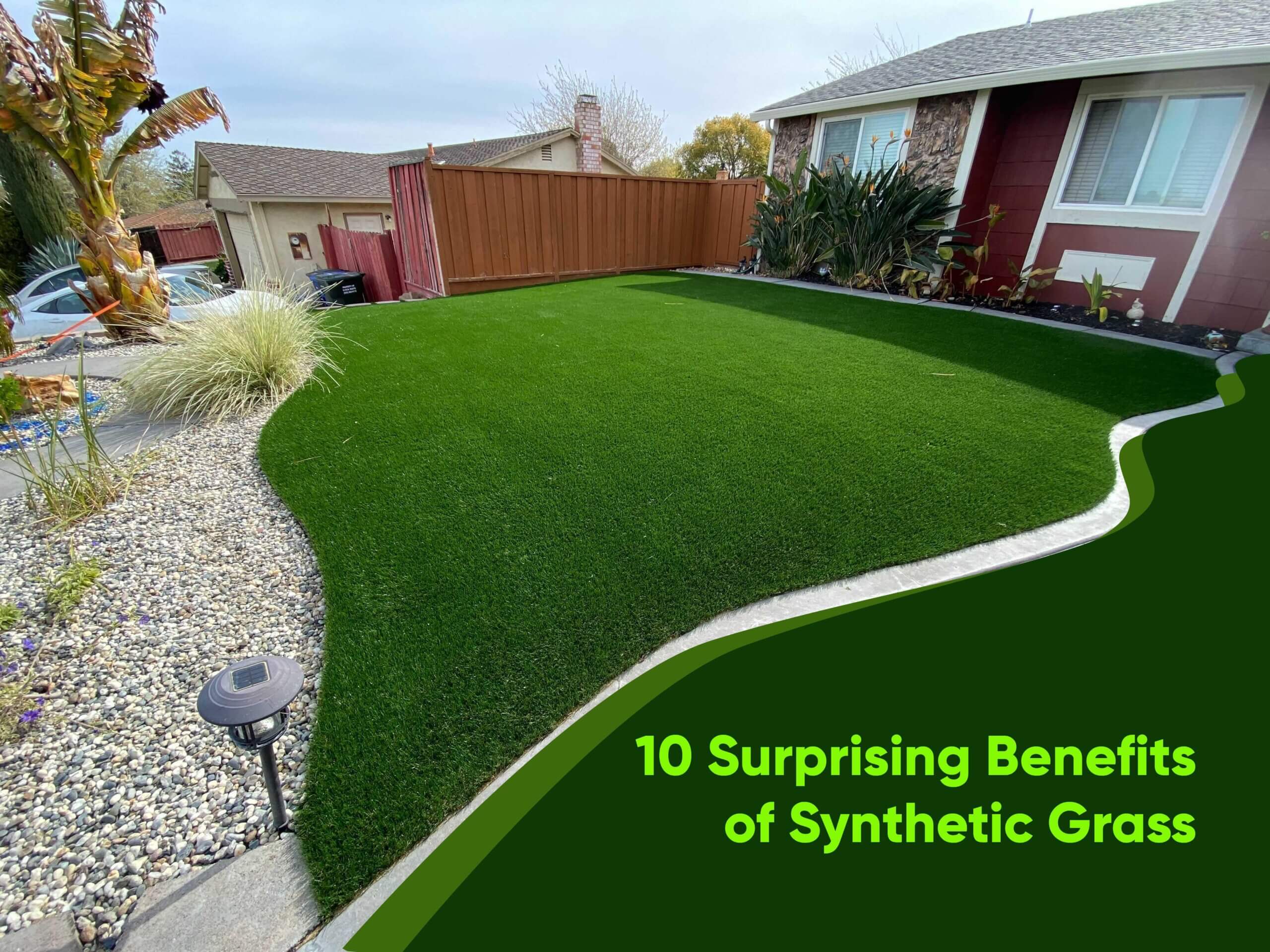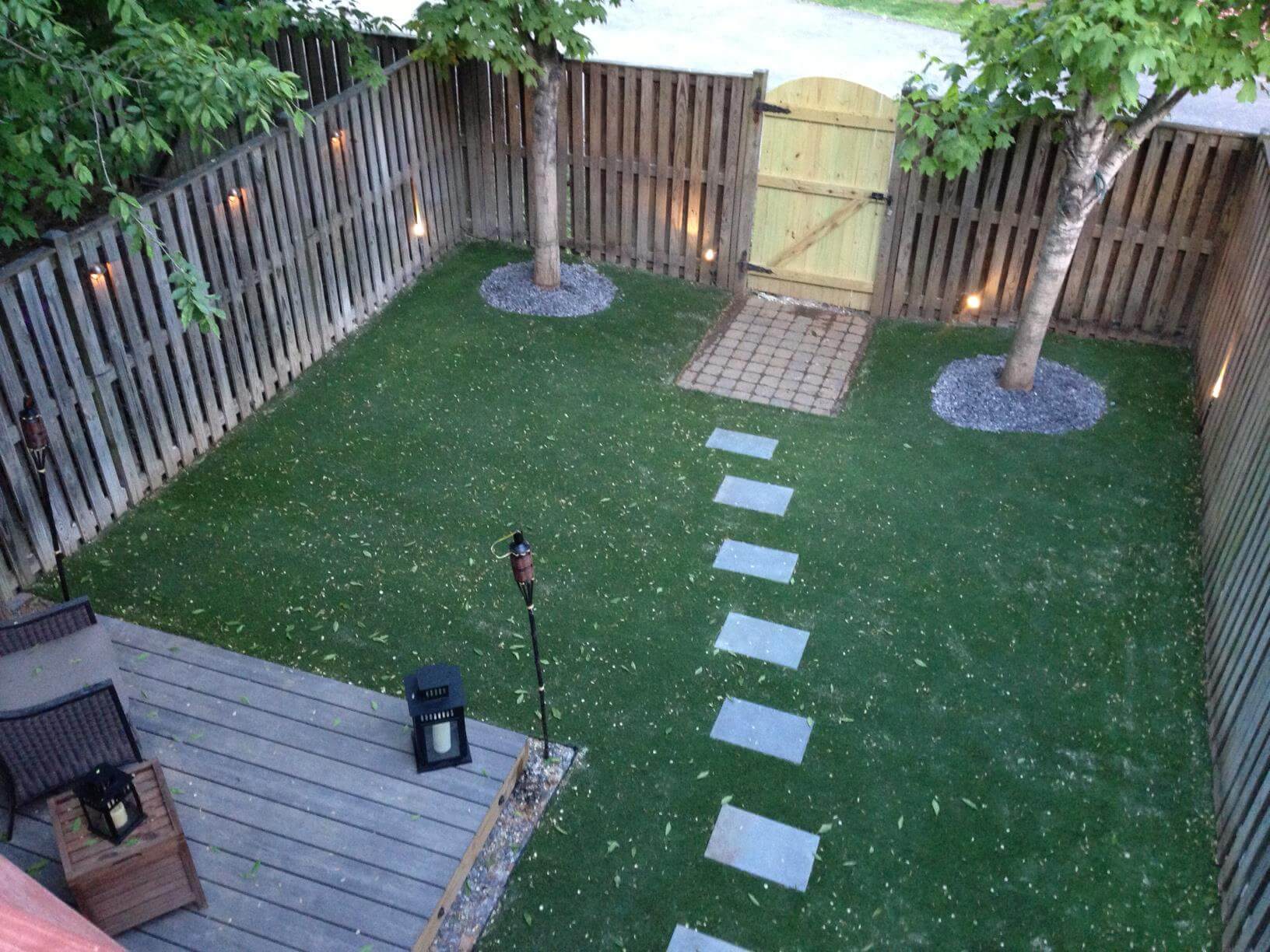Top Factors to Consider Artificial Yard for a Low-Maintenance and lush Backyard
As property owners increasingly seek sustainable solutions for outdoor spaces, artificial grass presents an appealing choice to traditional grass. The benefits expand past simple aesthetic appeals and sustainability; checking out the diverse implications of artificial grass discloses a thorough strategy to lawn administration that benefits deeper factor to consider.
Year-Round Plant
Among the most substantial advantages of synthetic yard is its capability to offer year-round greenery, no matter climate conditions. Property owners typically face obstacles in maintaining a vibrant yard because of seasonal modifications, droughts, or hefty rains. Fabricated grass removes these concerns, making certain a regularly lush look throughout the year.
This artificial alternative is crafted to hold up against varied climate situations, from sweltering summer warmth to freezing winter season temperature levels. Unlike all-natural grass, which may brown or end up being irregular throughout extreme conditions, synthetic grass preserves its vibrant color and appearance, enhancing the visual appeal of any kind of landscape.
In addition, man-made grass is resistant to parasites and illness that usually impact natural yards. This strength adds to its long-lasting elegance, as there is no requirement for chemical therapies or plant foods that can be damaging to the environment. Additionally, house owners can delight in the aesthetic benefits of a well-kept grass without the intermittent obstacles positioned by all-natural turf care (turf installation).
Minimized Upkeep Efforts
Man-made yard considerably decreases maintenance efforts, allowing house owners to enjoy an excellent grass without the lengthy jobs connected with all-natural yard treatment. Among one of the most notable benefits of artificial grass is the elimination of normal mowing. Without need for a lawnmower, house owners conserve both time and the price of maintenance connected with this tools.

Cleansing fabricated grass is straightforward; a straightforward rinse with a hose or the periodic cleaning to get rid of debris is normally enough - artificial grass. This convenience of care allows homeowners to invest more time enjoying their exterior rooms instead than struggling over them. In summary, the decreased upkeep initiatives connected with fabricated lawn make it an appealing option for those seeking an attractive, easy backyard
Water Conservation Perks
The significant reduction in upkeep initiatives related to fabricated lawn includes water conservation, making it an eco-friendly choice for property owners. Standard lawns require significant amounts of water to remain lush and dynamic, typically resulting in too much water use, specifically in arid regions. On the other hand, synthetic yard removes the requirement for regular watering, considerably lowering the overall water consumption in your backyard.
By anchor selecting synthetic grass, homeowners can save thousands of gallons of water annually. This change not just benefits specific houses however additionally contributes to more comprehensive ecological campaigns intended at minimizing water waste. In locations experiencing water scarcity, the fostering of fabricated lawn can play a substantial duty in alleviating the impacts of drought and making certain that important water resources are used a lot more successfully.
Additionally, the installation of artificial yard can aid reduced metropolitan water demand, benefiting the neighborhood in its entirety. With growing recognition of environmental problems, choosing synthetic grass acts as an aggressive action towards lasting landscaping, aiding to preserve natural water resources while keeping a cosmetically pleasing outdoor space (artificial grass canoga park). In recap, synthetic grass offers an engaging solution for water preservation, straightening ecological responsibility with contemporary landscape design requirements

Insect and Allergic Reaction Reduction
A significant benefit of setting up artificial turf is its capacity to decrease insects and allergens in outside spaces. Conventional lawn lawns usually work as reproducing premises for pests such as mosquitoes, ticks, and ants, which can produce pain and wellness risks for families and pets. On the other hand, artificial turf gets rid of the natural product that attracts these insects, consequently considerably decreasing their populaces in your lawn.
Furthermore, natural grass can nurture mold, pollen, and various other irritants, which can cause allergies and breathing problems for delicate people. Synthetic grass supplies a cleaner setting, reducing the potential for allergenic reactions. Unlike all-natural yard, synthetic grass does not produce pollen, making it an exceptional alternative for allergic reaction sufferers seeking to enjoy their outdoor spaces without the risk of flare-ups.
Furthermore, the absence of soil in synthetic grass indicates there is much less dirt and dirt, additional lessening airborne allergens. This low-maintenance option not just enhances the aesthetic appeal of your yard yet also advertises a much healthier exterior setting, permitting family members to appreciate their yards without the continuous worry of irritants and find parasites. Hence, man-made lawn is a calculated option for those prioritizing convenience and wellness in their outside living areas.
Long-Term Expense Savings
Spending in synthetic grass can lead to substantial lasting cost financial savings for house owners. Synthetic yard gets rid of the demand for routine grass maintenance costs, such as mowing, fertilizing, and watering.
Additionally, the longevity of artificial lawn even more boosts its cost-effectiveness. Many high-quality man-made yard products can last 15 to 25 years with marginal maintenance, decreasing the demand for replacement or substantial fixings. On the other hand, all-natural turf might call for frequent reseeding and routine treatment, which can quickly accumulate in expenses.
Energy cost savings are an additional vital variable. Homeowners can expect to see lower water expenses, as artificial lawn does not require irrigation. Furthermore, the decrease look at this site in yard treatment solutions can liberate valuable time and resources, enabling house owners to allot their spending plans elsewhere.
Conclusion
In summary, man-made lawn offers countless benefits for home owners looking for a low-maintenance and vibrant landscape. Its ability to provide year-round greenery, paired with reduced maintenance efforts and significant water preservation, makes it an enticing choice. Additionally, the decrease of bugs and allergens adds to a much healthier outside atmosphere. Eventually, the long-term cost savings related to artificial lawn strengthen its standing as a lasting and useful solution for boosting exterior areas.
Fabricated lawn considerably lowers upkeep efforts, enabling property owners to enjoy an excellent lawn without the taxing tasks linked with natural yard treatment.The significant decrease in maintenance initiatives associated with artificial grass expands to water conservation, making it an ecologically friendly choice for homeowners. In contrast, fabricated turf removes the need for routine watering, significantly lowering the overall water usage in your backyard.
In areas experiencing water shortage, the fostering of artificial lawn can play a substantial role in alleviating the results of drought and making sure that beneficial water resources are used extra efficiently.
With growing understanding of ecological concerns, choosing synthetic lawn offers as a proactive step towards sustainable landscaping, assisting to protect all-natural water resources while keeping an aesthetically pleasing outdoor area.